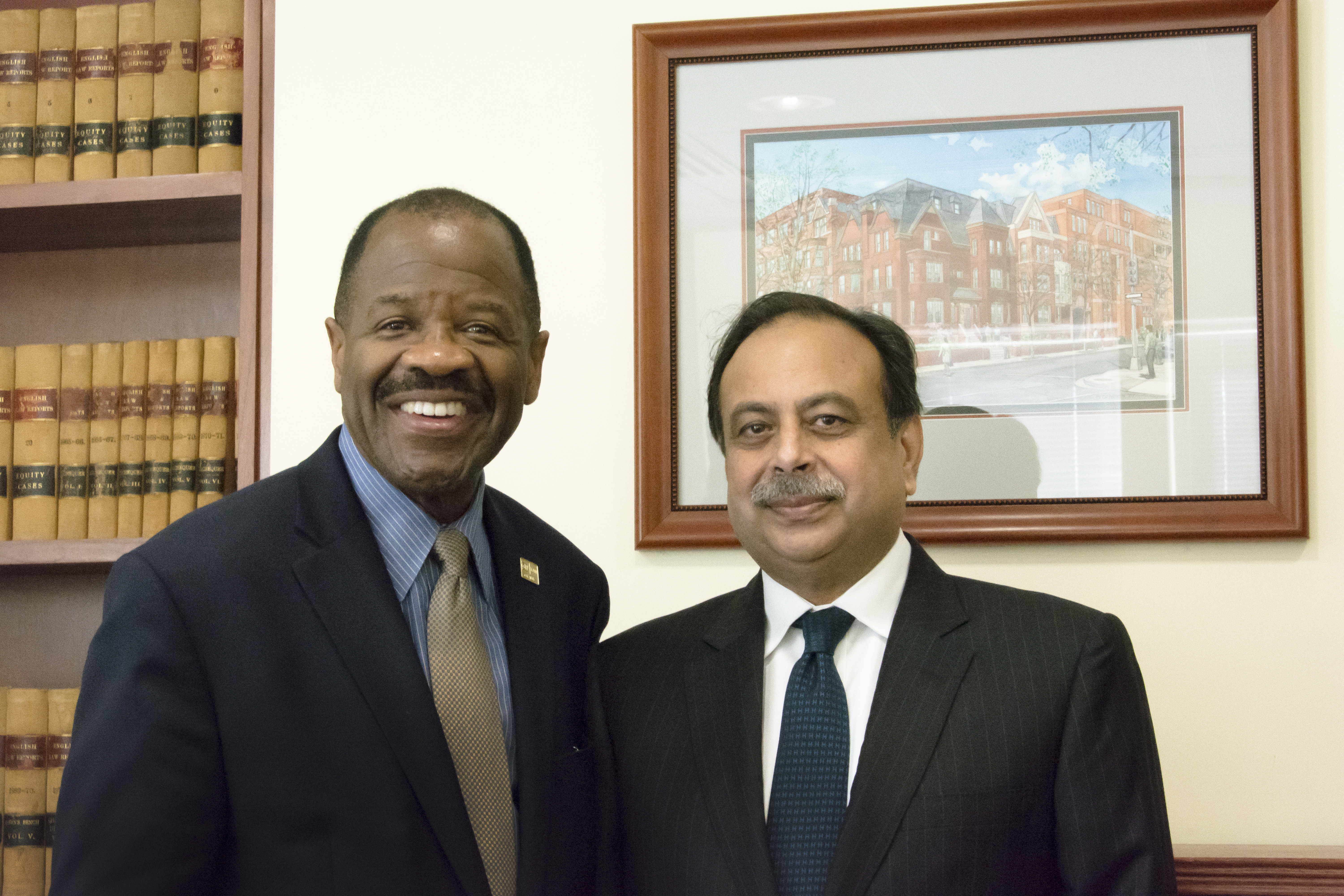Ashtar Ausaf Ali, MLC ’81, is a Pakistani lawyer and the 32nd Attorney-General for Pakistan. Mr. Ausaf returned to his alma mater and was interviewed about his GW Law experience; he also spoke about how his career has evolved since he graduated.
Mr. Ausaf received his LLB from Punjab University in 1980. Soon after he graduated, Mr. Ausaf decided he wanted to pursue an education in the United States; he began to do research on schools that would match his needs. Mr. Ausaf was immediately interested in the idea of studying in Washington, D.C., when someone described the city as a “melting pot.” He soon found that GW Law would be the perfect fit, saying, “Here I would be able to experience politics in action and understand how the government works. I would have access to everything such as the Supreme Court of the United States and the Library of Congress,” he said. “My research told me this school was very rich, and in the end, I am glad GW Law chose me.”
At GW Law, Mr. Ausaf had an interest in international law and conflict resolution. The knowledge he had acquired would assist him later on as an educator. After Mr. Ausaf earned his MLC, he taught a course in the summer at the law school. Mr. Ausaf had the unique opportunity of experiencing GW Law as both a student and instructor and said he had a “wonderful” time in both roles. “It was fantastic being on the other side because I was able to see how hard the students worked," Mr. Ausaf said. He returned to Pakistan and taught law of international institutions at Punjab University for a few years, and while he was there, Mr. Ausaf co-established their LLM program.
Mr. Ausaf stopped teaching in the late 80s and "came to prominence in 1993 when he represented the then Nawaz Sharif government before the Supreme Court after it was toppled through dissolution of assemblies by former president Ghulam Ishaq Khan." He then decided that he wanted to pursue a career in private practice in the late 90s, but Mr. Ausaf said that was interrupted when he was asked to become the Advisor to the Prime Minister on Human Rights in 1997. Mr. Ausaf went on to share a few of his career highlights.
In 1998, Mr. Ausaf was appointed as the Advocate General of the Providence of Punjab. A year later, he decided to return to private practice until 2011. In 2012, he was appointed once again as the Advocate General for two years. Afterwards, Mr. Ausaf was appointed to Prime Minister Nawaz Sharif's cabinet as Special Assistant to the Prime Minister on Law, with the status of Minister of State, in February 2015, and handed charge of the Ministry of Law and Justice until March 2016. Later that month, he officially assumed office as the 32nd Attorney-General for Pakistan.
As the Attorney General, Mr. Ausaf advices the government on matters relating to the law, and he has the right of audience in all Courts in Pakistan regardless of the case, as well as the right to participate in the proceedings of the Parliament, albeit not the right to vote—similar to the House of Representatives in the U.S. Senate. He is an advisor to the government—to the Judiciary, Executive, and Parliament—all three pillars of the state. “It is a unique privilege,” he said. “While it is a challenging role, it is also a rewarding one—knowing that you can make a difference if you work hard and have your thoughts and heart in the right place—it is quite an honor.”
He ended the interview by providing students three pieces of advice: “You need to work hard; you need to be noticed; and you have to have public service as your goal,” he said. In order to be noticed, Mr. Ausaf suggested that students need to write about things that matter and ask questions about the law, policy, and of public importance.
For those who strive to have a similar career as Mr. Ausaf, he said, “You must think about making a difference and not enriching yourself but to enrich others.”


